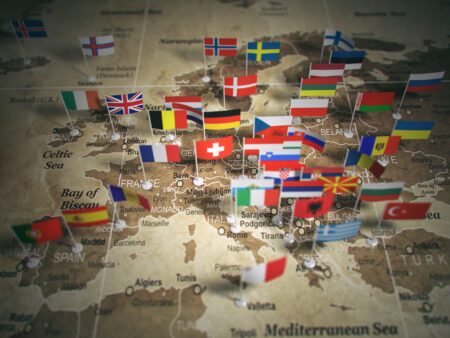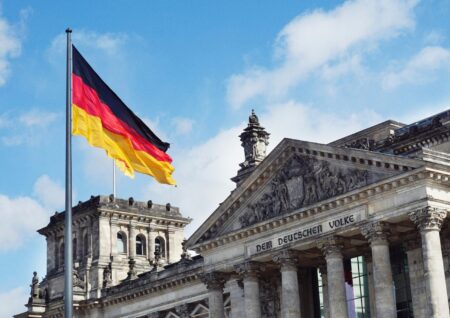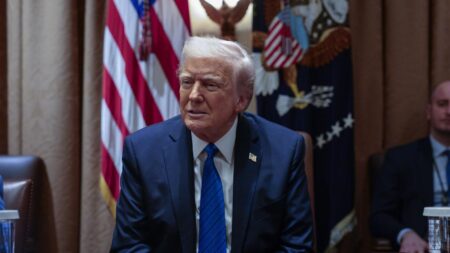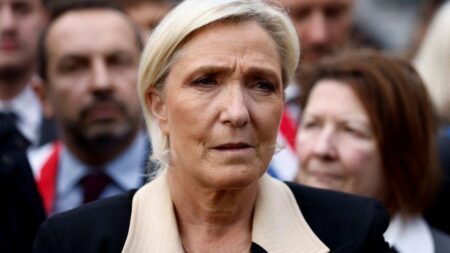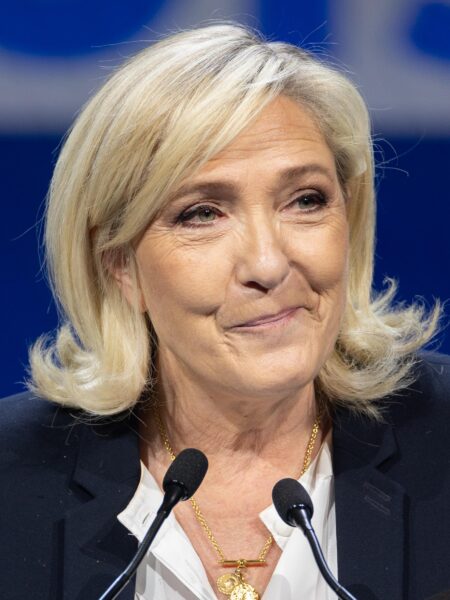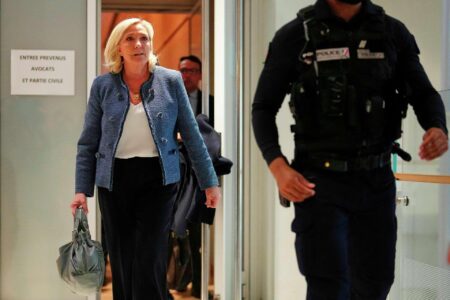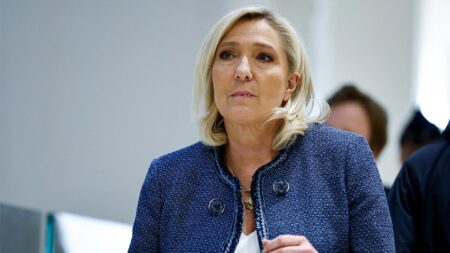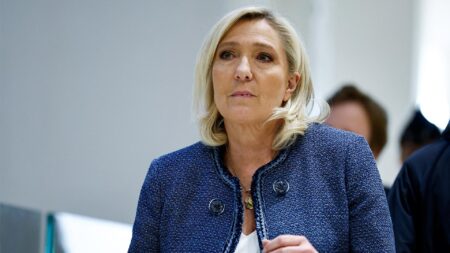Italy’s Giorgia Meloni exemplifies the challenges of moderating Europe’s far-right movements. Despite attempts to present a more palatable image, her government‚Äôs actions reveal the enduring appeal of nationalist rhetoric, threatening EU cohesion.
Browsing: far-right
In a significant shift in German politics, the far-right Alternative for Germany (AfD) has topped the polls for the first time, posing a challenge to Chancellor-in-waiting Friedrich Merz. This development signals rising support for nationalist sentiments amid national debates.
In a strategic move ahead of the upcoming elections, Marine Le Pen is intensifying her rhetoric, aiming to leverage social divisions in France. Analysts warn that her approach may deepen societal rifts as she seeks to consolidate power for her party.
Former U.S. President Donald Trump has publicly endorsed France’s far-right leader Marine Le Pen following her recent conviction in a defamation case. This support underscores Trump’s continued alignment with nationalist movements in Europe as they seek electoral success.
The recent court verdict against Marine Le Pen has sparked outrage among far-right factions in France and beyond. Supporters claim the ruling exemplifies political bias, while critics view it as a critical step towards accountability for populist leaders.
France’s far-right leader Marine Le Pen faces significant legal challenges that could impact her political future. These issues include previous convictions and ongoing investigations, raising questions about her eligibility in upcoming elections.
Marine Le Pen’s recent ban from public office has intensified divisions within French society. Supporters view it as a crucial step against extremism, while opponents argue it undermines democratic discourse, deepening the nation’s political rift.
France’s Marine Le Pen has been barred from holding public office for five years following a conviction for embezzlement. The ruling underscores the ongoing scrutiny of political figures amidst allegations of financial misconduct, as reported by CNBC.
In a bold response to her recent barring from office, Marine Le Pen remains defiant, asserting that her political ambitions are undeterred. The ruling has sparked significant debate about political freedoms and the implications for France’s far-right movement.
In‚ÄĆ a notable‚Äć turning ‚Ā£point in French ‚Äčpolitics, Marine ‚ĀĘLe Pen, ‚ÄĆthe controversial ‚Äćleader ‚Ā£of the National Rally party, has…
In a landmark ruling, France’s far-right leader Marine Le Pen has been found guilty of embezzlement, marking a significant setback for her political career. The court’s decision centers on the misuse of EU funds, raising questions about transparency in her party.
Tens of thousands across France took to the streets in a robust demonstration against racism and far-right ideologies. The protests highlight growing concerns over social inequality and discrimination, as citizens demand government action to address these issues.
German conservatives are increasingly aligning with far-right elements, prompting NGOs to voice concerns over a potential crackdown on civil society. Activists warn that this shift threatens democratic values and undermines civic engagement in the country.
Far-right leaders converged in Spain, uniting under the banner of “Make Europe Great Again.” This rally underscored the rising influence of nationalist movements across the continent, as participants advocated for strict immigration policies and national sovereignty.
Germany’s far-right party, AfD, has doubled its vote share in recent elections, signaling a significant shift in the country’s political landscape. This surge raises concerns about the influence of extremism and poses challenges for traditional parties in maintaining stability.
France’s far-right leader Jordan Bardella canceled his scheduled speech in the U.S. following a controversy involving former Trump aide Steve Bannon, who made a gesture reminiscent of Nazi salutes. The incident underscores tensions surrounding far-right movements.
In the latest polls ahead of Germany’s elections, CDU leader Friedrich Merz appears poised to become the next chancellor. Meanwhile, the far-right AfD is experiencing a notable surge, raising concerns about its potential influence on German politics.
In a striking turn of events, a far-right party in Germany has recorded unprecedented support in the recent elections, reflecting shifting political sentiments. Analysts are examining the implications for the nation’s political landscape and societal cohesion.
In a significant political shift, Germany’s Friedrich Merz declared victory for his conservative party as exit polls indicated substantial gains for far-right factions. This outcome reflects a changing electoral landscape and raises questions about future governance.
In a significant electoral shift, German conservatives celebrated a substantial victory, while the far-right party achieved historic success. This outcome reflects growing support for nationalist sentiments, reshaping Germany’s political landscape.

